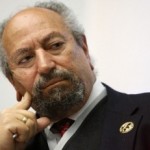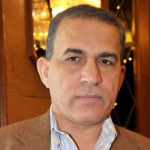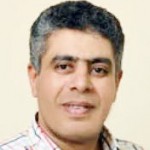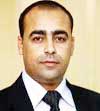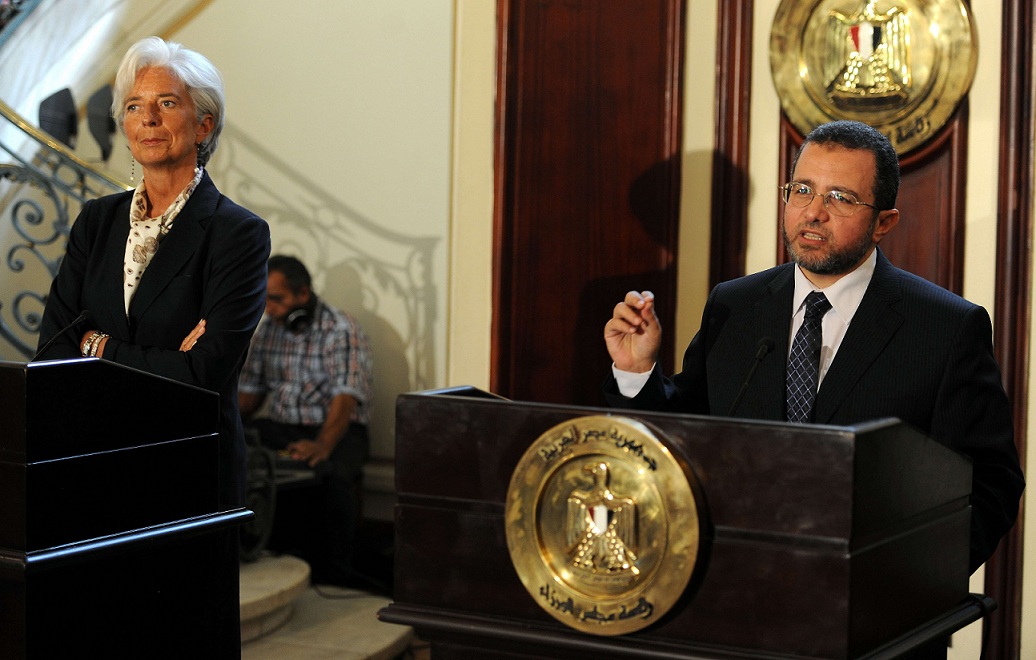After President Mohamed Morsy granted himself sweeping new powers in a constitutional declaration on Thursday, columnists were divided for and against this bold move. On a related note, continuing clashes in Mohamed Mahmoud Street occupy more than one writer. Many commentaries denounce the clashes as meaningless, describing protesters as “thugs”.
The Muslim Brotherhood, Hamas and the caliphate
Saad Al-Din Ibrahim
Al-Masry Al-Youm newspaper
Despite Morsy’s role in negotiating a ceasefire that ended the recent Israeli aggression in Gaza, Ibrahim is worried about Hamas’s future relations with the president. The writer recalls numerous incidents where Hamas fighters played a role in the 25th January revolution.
Breaking into prison cells during the final days of Mubarak, entering Egypt through cross-border tunnels in Rafah and claims that they had contributed to the killing of Egyptian soldiers on the border during Ramadan suggests that Hamas is involved in what happens behind the scenes in Egypt, Ibrahim states. He believes that Egypt’s current peace-brokering again demonstrates Palestine’s importance to Egypt’s national and regional stability.
The writer touches upon claims that Morsy aims to construct Palestinian settlements in Sinai. Many fear that this could lead to Sinai becoming an emirate for Al-Qaeda terrorists in Egypt, since Osama bin Laden once established bases in uninhabited and strategic areas in Sudan, Somalia, Algeria and Indonesia.
The writer finally stresses that Morsy, Hamas, and the Muslim Brotherhood in Palestine have always dreamed of founding an Islamic caliphate extending from Indonesia in the east to Nigeria in the west. Egyptians need to stay alert, he writes.
The martyrs are innocent
Soliman Gouda
Al-Masry Al-Youm newspaper
Analysing Morsy’s newly-announced constitutional declaration, Gouda states that presidential advisers who agreed with Morsy about this announcement have made a new pharaoh out of him. In an era when Egyptians are no longer accepting of tyranny, the writer condemns the constitutional declaration in which Morsy granted himself absolute power.
There isn’t a single line in the declaration to guide Egyptians to a brighter future, he writes. It only showed a desire to exact revenge against ex-regime figures. Interestingly, on the same day of the constitutional declaration, the head of the Central Agency for Public Mobilisation and Statistics announced that 196,000 have been made redundant since Morsy assumed power on 30 June. The total number of those losing employment since the start of the revolution has reached 300,000, in addition to other losses.
With reference to the new decision to increase compensation for those injured during the revolution to equal that provided to the families of those killed, Gouda states that the “martyrs” are completely innocent regarding what is currently happening on the political scene. They probably hoped for nothing more than a better future for this country, the writer concludes.
The beneficiary of Mohamed Mahmoud clashes
Emad Al-Din Hussein
Al-Shorouk newspaper
As clashes continue in Mohamed Mahmoud Street, Hussein suggests that protesters in the street aim are intent on aborting the 25 January revolution. The only beneficiaries of fighting in Cairo’s now-iconic street are those who oppose the concept of the revolution, in the writer’s opinion. If Hussein has the chance, he will probably ask the minister of interior to put a stop to all those who attempt to destroy the country and vandalise property by their meaningless clashes.
During his latest visit to the street, Hussein saw a number of masked youths, no older than 15, trying to scale the barriers protecting the Ministry of Interior. They must have a bitter vendetta against police officers, Hussein supposes. When all political and revolutionary powers have distanced themselves from those in Mohamed Mahmoud Street, the writer believes that those present can only be “thugs” or maybe the anonymous “third party”.
Protesters in Mohamed Mahmoud Stret have proven that they oppose all attempts at genuine change and development, Hussein believes. After witnessing the recent skirmishes, the writer argues that this unknown third party seizes every opportunity to carry out more devastating acts against a vulnerable Egypt.
Nothing new in Mohamed Mahmoud
Ahmed Al-Sawy
Al-Shorouk newspaper
Al-Sawy believes that the scene in Mohamed Mahmoud Street imitates that of one during Mubarak days. Everybody is placing the blame on a “third party” whose identity is never revealed. Police officers continue using tear gas and protesters still engage in violence. And people still ask about the real identity of those demonstrating in the street. Many continue to believe that there is a “third party’’ that triggers all the scuffles and hinders the democratic process.
Exactly like the days of the old regime, the writer states that the Ministry of Interior’s statement preceding the anniversary of the first Mohamed Mahmoud Street clashes copies the Mubarak-style way of warning Egyptians about what might happen during protests. Even the mechanics by which the crisis is being managed does not vary much than earlier methods.
Political groups maintain their distance from the clashes, rejecting claims that protesters in the street have any political inclinations. The Muslim Brotherhood, believing that a “third party” is orchestrating chaos, fails to implement practical solutions to end the clashes. Everything in Mohamed Mahmoud Street remains the same; the violence, the bloodshed and the “third party”, Al-Sawy states.
The conspiracy against Egypt and the revolution
Ahmed Mansour
Al-Watan newspaper
Mansour is supportive of Morsy’s new constitutional declaration. After court decisions that found ex-regime figures not guilty of crimes relating to the killing of the protesters, the writer believes that the new constitutional declaration will ensure justice for those killed during the 25 January revolution. The writer also states that the current division in the Constituent Assembly will lead to nothing but a wider constitutional vacuum hindering democratic transition.
Recalling the latest incident of an ex-presidential candidate, who is also a member of the body, pushing other members to withdraw, Mansour denounces the delay in finalising the constitution. Mansour believes that as long as Morsy’s constitutional declaration is temporary, Egyptians should allow more time for the president to firmly take charge of the country.
Mansour believes that protests in Tahrir Square and Mohamed Mahmoud Street are signs of a conspiracy against Egypt and its revolution. Revolutionaries would not be willing to set the French lycée on fire or burn the American University in Cairo. Mansour concludes his column by repeating his support for Morsy’s latest decisions and criticising the meaningless protests that are ongoing.
